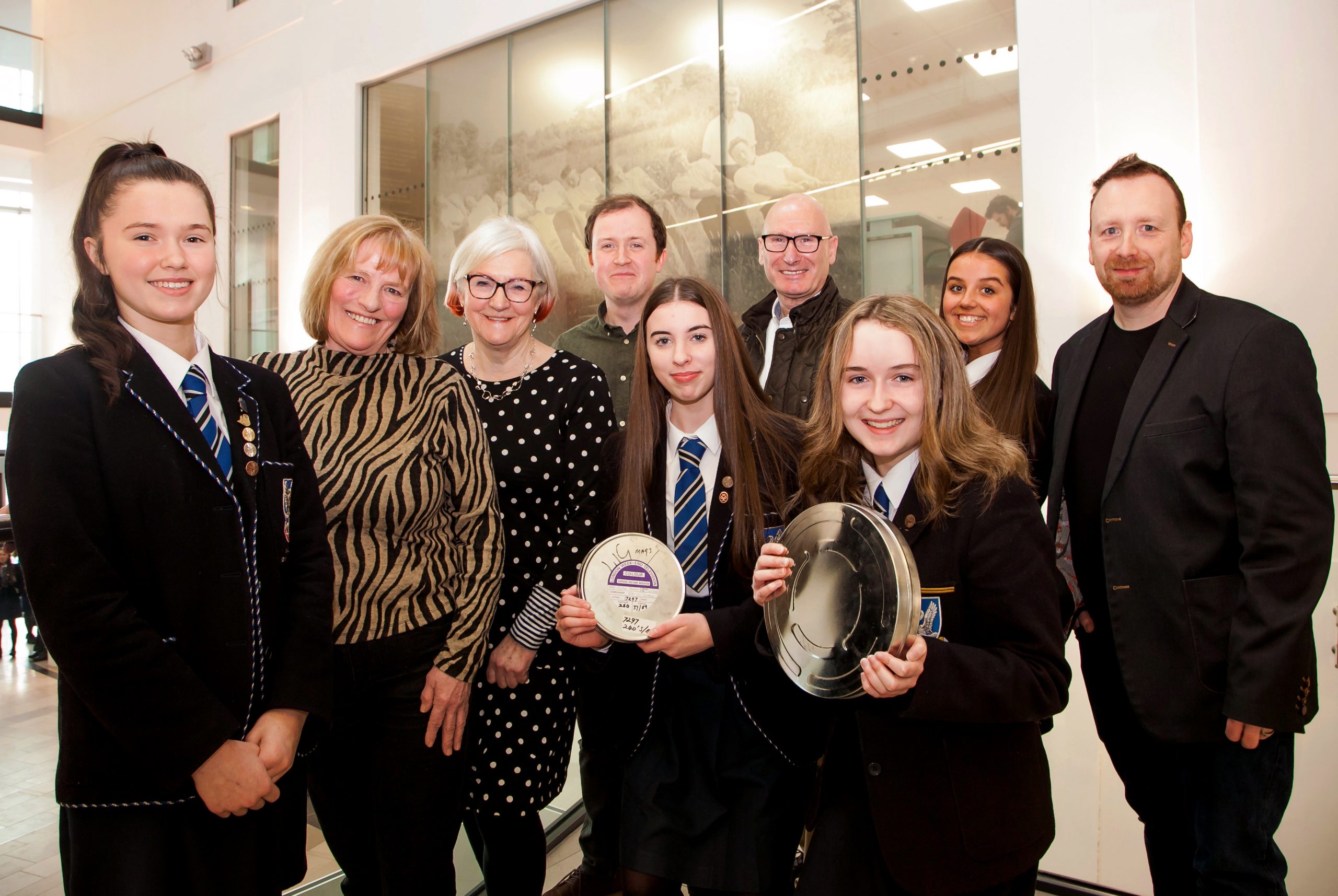
Seventy schoolchildren have been given a unique insight into life inside prison at the height of the Troubles, thanks to the power of film.
The screening of selected footage from the Prisons Memory Archive (PMA) took place at the Public Records Office of Northern Ireland (PRONI) in Titanic Quarter in association with education charity, Into Film.
The event included talks from two former prisoners from both sides of the conflict, Progressive Unionist Party leader Billy Hutchinson a former UVF prisoner who served 16 years between 1974-90 in Long Kesh and Maze Prison and Angela Nelson, a former Republican prisoner who was on remand at Armagh Gaol between 1973 and 1975 and 1976-77.
Both spoke about their experiences of life inside and how they became involved in the conflict. The school children also heard from Joanna McMinn, an Open University teacher, who taught Women’s Studies on the H Blocks.
Sean Kelly from Into Film said the event illustrated the power of film to educate young people about their history and culture, a chance to learn from the past.
“These young people have no direct experience of growing up during the Troubles so this screening and talk is a powerful living memory of what it was like during those difficult times and a warning that they should never be repeated. Archive events such as this further illustrate the power of film as an educational tool and the importance of storytelling within our culture,” he said.
Cahal McLaughlin, director of PMA said: “The legacy of the past is still with us. The stories in the Prisons Memory Archive from those who experienced the Troubles are important in our understanding of where we have come from and in helping us to move forward.”
The PMA is a collection of 175 filmed walk-and-talk recordings with those who had a connection with Armagh Gaol and the Maze and Long Kesh Prison during the conflict. Recordings took place in 2006 and 2007 within the empty prison sites, and the archive includes stories from a wide range of people connected with the prisons, including former prisoners, prison staff and teachers. The archive also contains video footage and photos from both sites.
With the backing of the National Lottery Heritage Fund a new partnership between the PMA, PRONI and QUB is making the recordings, footage and photographs accessible at PRONI and through a new interactive website.
An active outreach programme also aims to engage people, including schoolchildren, through events, to help them learn about their shared heritage.
For more information about the PMA and to watch a selection of recordings visit: www.prisonsmemoryarchive.com

